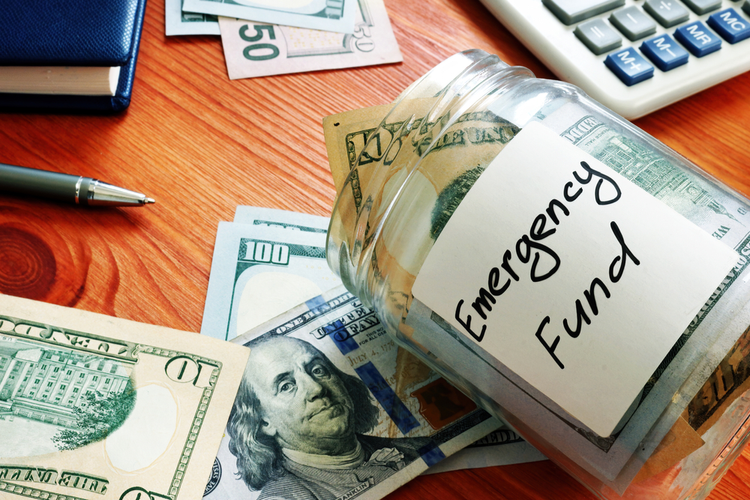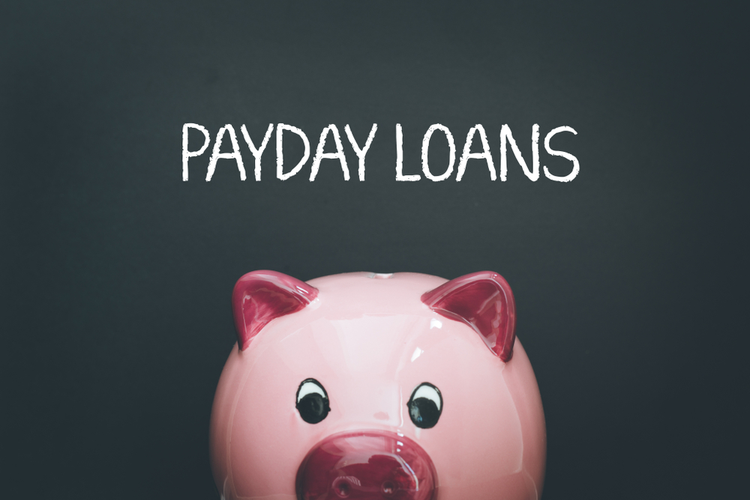
How Much Money Should You Have in Your Emergency Fund?
Most, if not all, financial experts agree that you should have an emergency fund. It’s the most successful method against financial emergencies: when you have money saved, financial hurdles like home repairs, car breakdowns, medical bills aren’t something to be feared.
However, when it comes to how much money should you have in emergency fund the opinions of financial experts differ widely.
We’ve broken down the upsides and downsides of the most popular approaches, so that you can decide for yourself which one suits you best.
The Emergency Fund Breakdown
Approach #1: A $1000 Emergency Fund
This is an approach one of the most famous financial gurus of America, Dave Ramsey, calls his Baby Step #1. According to him, this is how much cash you should have in your emergency fund if you’re still in debt. Anything else is an indulgence – instead, it should be thrown at the debt, so that you can get rid of him as much as possible.
While there are certain upsides to this approach: it is a goal more quickly achievable than the others, and it does bolster people to concentrate on paying off the debt quicker, so that they can save more money sooner. However, many people, including Ramsey’s followers, who use his Baby Steps philosophy, point out that these days $1000 is simply not enough to be safe from emergencies.
Since one of the core ideas of having an emergency fund is to protect yourself from accruing more debt, it won’t do any good if the money in the fund isn’t enough to cover the emergencies you face. A $1000 simply doesn’t provide the same protection to a single person and a family with 5 members.
Many advise to somewhat “stretch” this approach and save up to 1 months’ worth of expenses – taking details like the area you live in, the number of your family members, and possible cost of financial emergencies into the account.
Approach #2: The 3-to-6 Months’ Worth of Expenses
While the same Dave Ramsey has put this down as #3 Baby Step (i.e. you should only put this much in your emergency fund, if you’ve already paid off your debt), the majority of experts consider this to be the most optimal amount.
Having 3-to-6 months’ worth of cash saved should help you comfortably cover not only all types of emergencies (like house repairs, emergency plumber and locksmith services, car maintenance, etc.), but also have you covered in the worst-case scenario. This has the potential to save you from accruing extra debt if you lose your job and have yet to find a new one.
Approach #3: The 6-to-12 Months’ Worth of Expenses
This approach is almost as controversial as a $1000 one. The gist is, while having this much money is certainly rock-solid protection, it also may be losing you money in the long run – i.e. you could’ve earned more money if you, say, contributed to your investments.
In truth, this is a murky area – if you’re saddled with long-term obligations, like a mortgage or large medical bills, having saved this much can provide much-needed relief down the line. If anything, 2020 has taught us, it’s that being overly cautious is better than not being cautious enough.
On the other hand, the point of the emergency fund is that it should be accessible for you at all times – so, you really won’t be earning any significant amount with the money, even if you put it in a high-yield savings account.
How Do I Decide Which Approach to Take?
Remember that each person’s situation is unique. You need to consider your work situation, your financial obligations, and – most importantly – at what point you’ll feel financially secured, before making the decision.

What Do I Do If I Don’t Have Enough Money in My Emergency Fund?
The downside of not having enough is that you’ll likely have to accrue debt to deal with a pressing problem. If you’re pressed for money, you might have to think about taking out a short-term fast loan, like a payday loan.
Why Payday Loans?
Because they’re easy to acquire: payday loans don’t require collateral or guarantor, the lenders work with all types of incomes and do not pay attention to credit scores, which means you can get approved even if your credit score is bad or outright nonexistent.
How Do I Get a South Carolina Payday Loan?
You can easily apply for an online payday loan by going to CarolinaPaydayLoansInc.com and filling out the quick cash form. Once that’s done, you’ll be contacted by a store representative who will set up a meeting.
At the meeting, you’ll need to provide them with your valid government ID, your most recent pay stub, and a blank check from an active checking account in your name. Your application will then be evaluated, and if you’re approved for the loan, you’ll get the cash ASAP.
So, how much money should you have in an emergency fund? The fact is, the answer may be different from one person to the next. Understanding your circumstances and taking your family into consideration will help to determine the right course of action for you. Having too little money is not helpful, but having too much can cause you to lose money in the long run, if investments will bring you even more money.
Note: The content provided in this article is only for informational purposes, and you should contact your financial advisor about your specific financial situation.